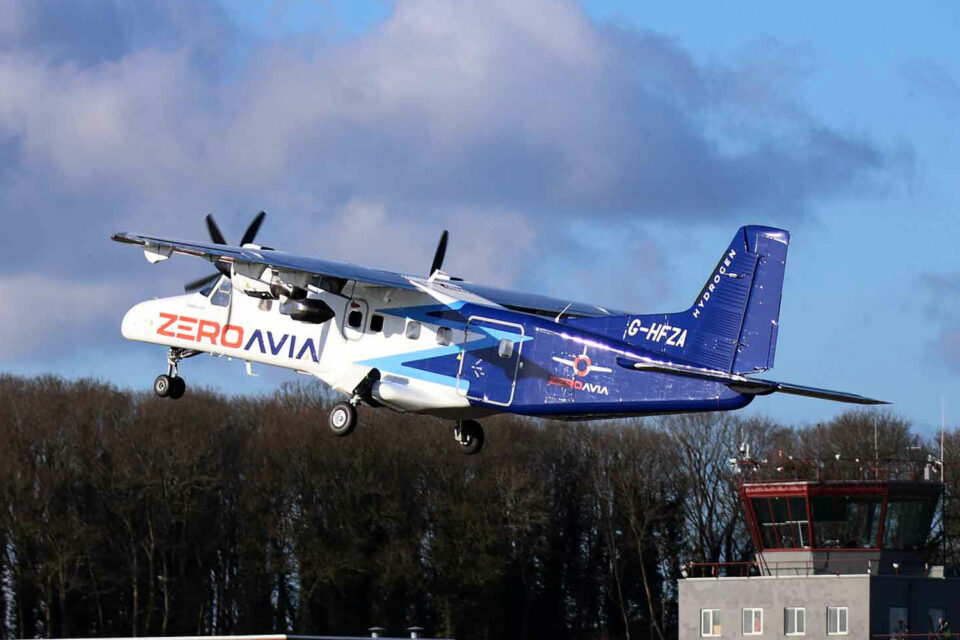A consortium of companies from the UK aviation and renewable energy sectors, including easyJet, Rolls-Royce, Airbus UK, Ørsted, GKN Aerospace and Bristol Airport, has announced the formation of Hydrogen in Aviation (HIA), an alliance dedicated to accelerate the adoption of hydrogen as a fuel in the country’s aviation market.
While there are several approaches to reducing carbon emissions in the aviation sector, such as the use of sustainable aviation fuels (SAF), synthetic fuels and batteries, HIA highlights the importance of exploring the direct application of hydrogen as a promising alternative.
The most abundant chemical element in the universe, hydrogen is seen as a particularly viable option for short-haul aviation.
Companies such as Airbus and Rolls-Royce are developing new aircraft powered by the alternative fuel, with plans to introduce them into service from 2035. Additionally, smaller companies such as ZeroAvia and Universal Hydrogen have already conducted successful flight tests with adapted planes.
Most popular posts
[wpp range=’last24hours’ wpp thumbnail_width=100 thumbnail_height=75 limit=3 stats_views=0 order_by=’views’]The goal of the HIA is to establish a clear and achievable path to the adoption of hydrogen-powered aviation. The group intends to collaborate closely with the government, local authorities and sectors of the aviation industry to create the necessary conditions for the use of hydrogen as fuel in aircraft. This will include developing adequate infrastructure and creating regulatory, political and security frameworks.

The HIA has also identified three key areas that require government attention for this transition to be successful.
Firstly, we need to invest in the infrastructure needed to position the UK as a global leader in the sector. Second, it is vital to adapt the aviation regulatory environment to accommodate the use of hydrogen. Finally, the alliance of British companies proposes a 10-year financing program to support research and development in the field of hydrogen-powered aviation, aiming to achieve economic and decarbonization goals.
Follow ADN: Instagram | Twitter | Facebook
Johan Lundgren, CEO of easyJet and first President of HIA, stressed the importance of acting quickly to seize the opportunity to make the UK a benchmark in hydrogen-powered aviation. “There is no doubt that the UK has the potential to become a world leader in hydrogen aviation, which could bring with it a £34bn per annum boost to the country’s economy by 2050, but in order to capture this opportunity, rapid change is needed and the time to act is now.”
The public wants hydrogen-powered planes
A survey carried out by consultancy The Jet Zero showed that there is strong public support for the use of hydrogen in aviation in the UK, with a majority of Britons believing that the “green” fuel is the best option to decarbonise the sector. There is also broad support for government investment in both the production and use of gas in aviation.






